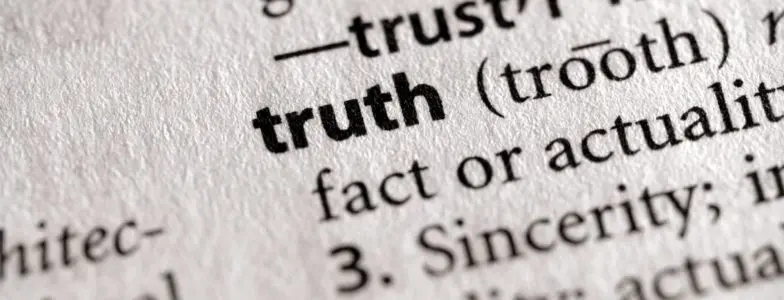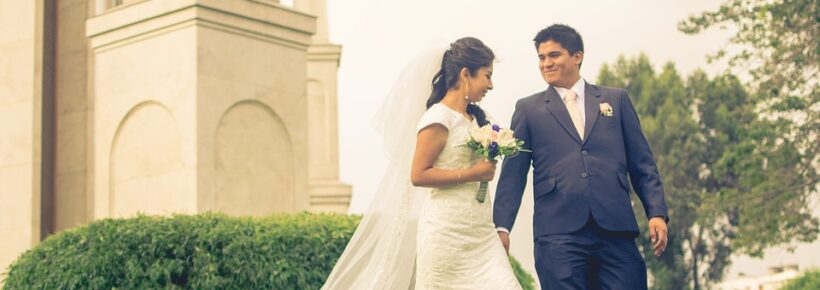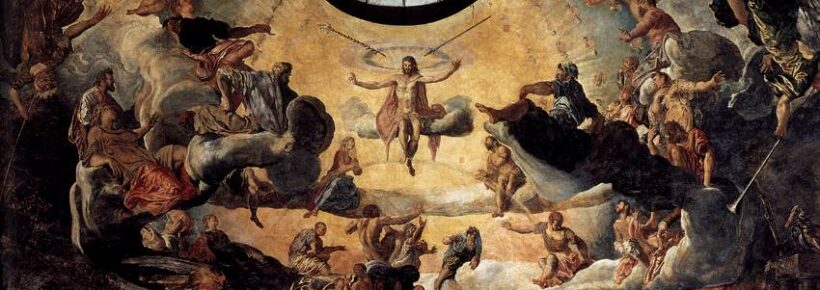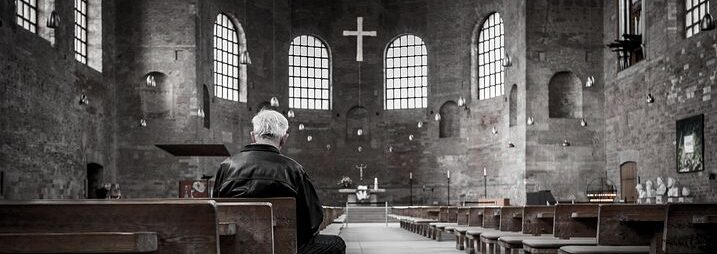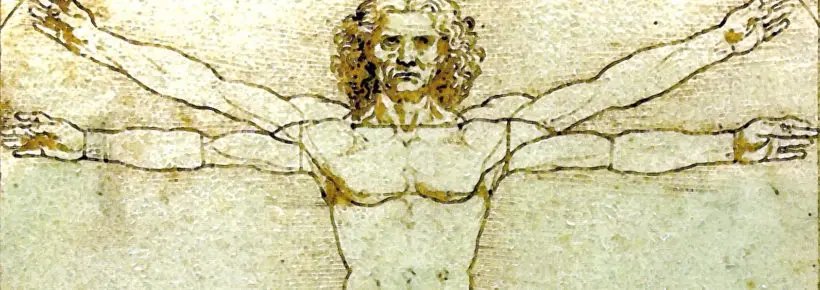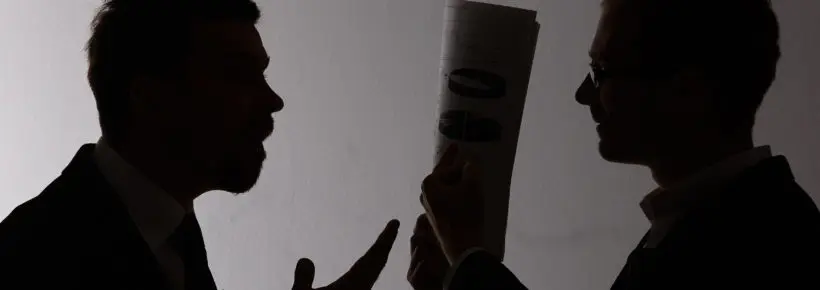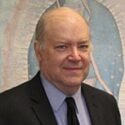Surveys in many countries consistently show that most Catholics believe that decisions of conscience about contraception rightfully belong with those who must bear and rear children. The legitimacy of teaching requires that it be embraced by the faithful. Your teaching has no such legitimacy. It is a marginalized minority view in our church, defended largely by a male celibate hierarchy.”
An Open Letter to Pope John Paul II on the Question of Contraception,” The New York Times, September 6, 1994.1
Published as an advertisement funded by Catholics for [a Free] Choice (CFFC) and other dissenting groups, this letter claimed most Catholics use birth control. So, they say, it should be embraced and promoted by the Church.
This attitude is a reflection of the curious belief that the Roman Catholic Church is a democracy, and thus should be subject to “morality and ethics by popular vote,” a concept which has mortally wounded most of the mainstream Protestant churches in the United States.
Many Catholics are closer to the view of CFFC on the role of conscience than they are to the Pope and the Magisterium, and would agree with CFFC’s false assertion “Church law affirms both the right and the responsibility of a Catholic to follow his or her conscience, even when it conflicts with Church teaching.”2
The Role of Conscience
The root of many of the problems in the Catholic Church today is a fundamental misunderstanding of the role of the human conscience. In fact, many Catholics are quick to use their consciences as a defense for mortal sin — but cannot define what it actually is. They see the conscience as a teacher, not a pupil; and they believe that it is the source of morality, instead of a witness to the moral law authored by God.
The Catechism addresses this fatal and fundamental error: “Objective rules of morality express the rational order of good and evil, attested to by conscience….It is by the judgment of conscience that man perceives and recognizes the prescriptions of the divine law” [¶1751, 1778].
This fundamental misconception leads to many people saying, “If I think birth control is the best choice in my own personal situation, then it’s all right.”
A dead giveaway that a person’s conscience is improperly formed is when he or she says something like “I respect the teachings of the Church, but I follow my own conscience in matters of sexual morality.” Nancy Pelosi’s stance is a classic example; she states repeatedly she is a “practicing and respectful Catholic” but, regarding the Church’s teachings on abortion and contraception, “My faith isn’t about what their position is.”3

Photo credit: Gage Skidmore
This statement is evidence that Pelosi’s conscience has become disconnected from objective truth. The causes are “ignorance of Christ and His Gospel, bad example given by others, enslavement to one’s passions, assertion of a mistaken notion of autonomy of conscience, rejection of the Church’s authority and her teaching, lack of conversion and of charity” [Catechism, ¶1792].
This type of erroneous thinking has led to the tragic situation where most Catholic married couples in this country use contraception and, in fact, cannot imagine living without it. Only about 2% of married Catholic women of childbearing age use natural family planning (NFP).4
This statistic is depressing, but should not be surprising. After all, people tend to uncritically imitate their society’s characteristics, especially in the absence of proper moral and religious formation. The Catholic Church in the United States is in a state of disarray. Most of Her members observe those rules that they find easy to comply with, and ignore all the rest. These people attend Mass when it is convenient, use artificial contraception and abort at the same rate as the general population, and generally ignore what the Church has to say on moral issues. These people are Catholic in name only, not in spirit. They look at public opinion as the yardstick against which to measure their own behavior, and are therefore doomed to failure in their spiritual lives.
Once again, the opinion of the majority is not the valid guide for morals. For all Christians, the will of God is the guide. When a couple uses contraception, they are directly interfering with God’s design for their lives.
Catholics have a further guide: The Church’s Magisterium. Catholics must follow the word of God in Scripture and the word of God as interpreted by the Pope under the teaching authority of the Church. It does not matter what dissident priests or Catholic lay people say; Catholics of good (not just convenient) conscience must follow God and the Magisterium ― even if they are in the minority.
Authority vs. Conscience
The question of conscience vs. authority must be answered on two levels, the most basic being from the standpoint of “natural law.”
As defined in Romans 2:12‑16 and Jeremiah 31:33, God imprints the natural law on the heart and soul of man, and this leads him to know whether or not an act is moral or evil.5 This means that the “natural law” is man’s instinctual knowledge of what is right and what is wrong ― his “conscience.” People who have poorly formed or unformed consciences have great difficulty in distinguishing right from wrong.
Those who refuse to follow Church teachings in sexual matters are the most likely to claim they are only following their own consciences. But they leave out a vital part of the equation: It is only licit to follow one’s conscience when that conscience is properly formed and the conclusions reached are in accord with the teachings of the Church.
Many appeal to an ill‑defined “Spirit of Vatican II” to support their concept of the human conscience. They use vague terms such as “renewal,” “reinvigoration” and “rejuvenation” of the Church, while misrepresenting what the documents of the Council actually say. They often quote Vatican II’s Dignitatis Humanae (“Declaration on Religious Freedom”) in support of their contention that people should be able to do anything their consciences do not object to.6
However, the same document notes, “Not a few can be found who seem inclined to use the name of freedom as the pretext for refusing to submit to authority and for making light of the duty of obedience.”7 Father John Courtney Murray, S.J., acknowledged by many as principal author of Dignitatis Humanae, described how an unformed conscience can lead to the moral anarchy of subjectivism:
The Declaration [on Religious Freedom] does not base the right to the free exercise of religion on ‘freedom of conscience.’ Nowhere does this phrase occur. And the Declaration nowhere lends its authority to the theory for which the phrase frequently stands, namely, that I have the right to do what my conscience tells me to do, simply because my conscience tells me to do it. This is a perilous theory. Its particular peril is subjectivism ― the notion that, in the end, it is my conscience, and not the objective truth, which determines what is right and wrong, true or false.8
The document confirms that the conscience must submit itself to the authority of the Church:
In forming their consciences the Christian faithful must give careful attention to the sacred and certain teaching of the Church. For the Catholic Church is by the will of Christ the teacher of truth. Her charge is to announce and teach authentically that truth which is Christ, and at the same time with her authority to declare and confirm the principles of the moral order which derive from human nature itself [¶14].
The conscience is a precious and sacred gift, and it must be cared for by continually forming it with prayer and education. It must be trained in the same manner that one who cares for his body would exercise it vigorously. The Catechism states, “The education of conscience is indispensable for human beings who are subjected to negative influences and tempted by sin to prefer their own judgment and to reject authoritative teachings” [¶1783].
Ignorance is certainly no excuse for committing sin. As we have seen, every Catholic has the duty to know what is evil and what is not, and, further, they should know why certain activities are evil. A person is culpable for the evil he commits when he “takes little trouble to find out what is true and good, or when conscience is by degrees almost blinded through the habit of committing sin.”9
By contrast, a properly‑formed Catholic conscience has been rigorously educated, is fully aware of the intrinsically evil nature of contraception, and is led by this knowledge to vigorously oppose it.
Final Thoughts
Tragically, many Catholics possess a fatally flawed concept of conscience, denying the need for formation in the truth, and treating mere desire as an absolute.
Conscience is indeed a decision-maker, but it must be freely submitted to the law of God, which is authentically interpreted and taught by the Magisterium of the Catholic Church, to which Christ entrusted His authority to teach in His Name. The gravest error lies not in affirming the freedom of conscience to decide, but in misinterpreting the nature of such freedom.
Freedom of conscience must be at the service of moral truth, but can never be its determinant.
+ Endnotes
[1] Excerpt from the full-page “An Open Letter to Pope John Paul II on the Question of Contraception,” published on page A11 of the September 6, 1994 edition of The New York Times. The ad lists the sponsoring and co-sponsoring organizations as Catholics Speak Out, Association for the Rights of Catholics in the Church (ARCC); Call to Action (CTA); Catholics for a Free Choice (CFFC); Coalition of Concerned Canadian Catholics (CCCC); Conference for Catholic Lesbians (CCL); CORPUS: The National Association for a Married Priesthood; Dignity/USA; the Eighth of May Movement [Netherlands]; the Federation of Christian Ministries (FCM); the Fellowship of Southern Illinois Laity (FOSIL); New Ways Ministry; Promises; Renewal Coordinating Community; and the Women’s Ordination Conference (WOC).
[2] Steve Askin. “Challenging the Right.” Conscience, Spring 1994, pages 65 and 66; “Abortion and Catholic Thought: The Little‑Known History.” Conscience, Autumn 1996, pages 2 to 5.
[3] John Jalsevac. “Pelosi Laughs Off Priest’s Letter Challenging Abortion Views, Says He was ‘Acting Hysterically’.” LifeSite Daily News, June 25, 2013.
[4] The most comprehensive study on the birth control habits of U.S. Catholics is the National Survey of Family Growth (NSFG), which showed that, of all married Catholic women, 17% have been sterilized, 32% use the abortifacient methods of birth control, 20% use other methods of contraception, and 29% use no form of fertility control because they are either infertile or are trying to get pregnant. ProQuest LLC. ProQuest Statistical Abstract of the United States 2015 [3rd Edition]. Bethesda, Maryland 2014. Table 108, “Current Contraceptive Use by Women by Age, Race, and Hispanic Origin: 2006 to 2010.”
[5] The Bible contains many references to the human conscience. It describes the fate of someone who does not guard or “keep” his conscience [Hebrews 9:14 and 1 Peter 3:16], and who allows his conscience to become “seared” [1 Timothy 4:2]. The Bible also speaks of a “weak conscience” [1 Corinthians 8:7], a “wounded conscience” (1 Corinthians 8:12], a “good” and “perfect” conscience (Hebrews 9:9 and 13:18; 1 Peter 3:21; and 1 Timothy 1:5,19]; a “clear” (blameless) conscience [Acts 24:16 and 1 Timothy 3:9], and a conscience that is “evil” or defiled [Titus 1:15].
[6] As one example, Frances Kissling says, “In its approach to the [abortion] issue, the organization [CFFC] relied on the Declaration on Religious Freedom, the Second Vatican Council’s endorsement of the separation of church and state, pluralism, and the primacy of conscience” [Frances Kissling, in “CFFC Notebook: A Mouse that Roars Turns 20.” Conscience, Spring/Summer 1993, page 54].
[7] Dignitatis Humanae (“Declaration on Religious Freedom”), ¶8. Father John Courtney Murray, S.J., principle author of Vatican II’s Declaration on Religious Freedom, quoted in Russell Shaw. “Answers.” National Catholic Register, September 13, 1992, page 4. The Fathers of Vatican II were very attentive to the role of the human conscience. In Gaudium et Spes, they wrote: “Conscience frequently errs from invincible ignorance without losing its dignity. The same cannot be said for a man who cares but little for truth and goodness, or for a conscience which by degrees grows practically sightless as a result of habitual sin. … Only in freedom can man direct himself toward goodness. Our contemporaries make much of this freedom and pursue it eagerly; and rightly to be sure. Often however they foster it perversely as a license for doing whatever pleases them, even if it is evil….Before the judgment seat of God each man must render an account of his own life, whether he has done good or evil” [¶16‑17].
[8] Father John Courtney Murray, S.J., quoted in Russell Shaw. “Answers.” National Catholic Register, September 13, 1992, page 4.
[9] Of course, if a person is not responsible for his own ignorance, this can be a mitigating or exonerating factor, as with children. Catechism of the Catholic Church, ¶1791; Vatican II, Gaudium et Spes [“On the Church in the Modern World”], ¶16.
Related Content
Dr. Brian Clowes has been HLI’s director of research since 1995 and is one of the most accomplished and respected intellectuals in the international pro-life movement. Best known as author of the most exhaustive pro-life informational resource volume The Facts of Life, and for his Pro-Life Basic Training Course, Brian is the author of nine books and over 500 scholarly and popular articles, and has traveled to 70 countries on six continents as a pro-life speaker, educator and trainer.




